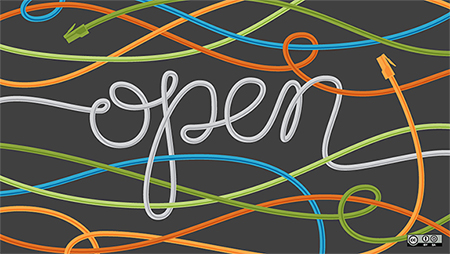
The first thing I do in the morning is sign into Facebook and Twitter. I’ll tell anyone listening that I’m trying to get more Twitter followers (Follow me @alannaoffield). I keep in touch with family and friends around the world sharing real time videos of my daughter walking via Skype.
As a social justice organizer, it is important to me that I read blogs from organizers around the world. I want to hear stories from people on the ground dealing first hand with various struggles, and the Internet lets me find those stories easily. I read Colorlines, Black Girl Dangerous, and Racialicious every day, but I also check in on the headlines from CNN, MSNBC, Al Jazeera, and Democracy Now.
I can’t tell you how many YouTube tutorials I’ve watched to learn how to do Algebra or to help me remember how to do metric conversions (they didn’t work). When my baby broke out in a rash a month or two after she was born and was up all night scratching and crying, the Internet was the first place I went to see what I could do to calm her itching.
My academic career has rested on online research and taking classes online when I was trying to juggle a newborn and a full time job as a single parent. Without the open Internet, none of this would be possible. An open Internet is currently under threat, and Media Literacy Project is hosting a Vigil for an Open Internet on Dec. 17 from 6 p.m. to 7:30 p.m. at 4th St. and Barelas St. in Albuquerque.
Open Internet, also known as net neutrality, preserves our right to communicate freely online while enabling and protecting free speech. It means that Internet Service Providers (ISPs) should provide us with open networks and not interfere with any applications or content that we access on our computers, phones, and other devices, allowing me to read my favorite blogs even if they criticize big telecom companies.
The Federal Communications Commission’s (FCC) Open Internet Rules state that Internet Service Providers (ISPs) cannot block lawful content, applications, or services even if they compete with applications or services provided by the ISP. The FCC rules also state that ISPs can’t discriminate in how quickly we see websites and content, even if the website is in competition with them or a company that advertises with them. For example, my ISP can’t legally make my Skype videos of my daughter load more slowly just because Skype is in competition with the phone services my ISP provides (although the FCC claims ISPs have illegally interfered with Skype in this way).
Despite the Open Internet Rules, Verizon attacked anyway, suing to repeal the FCC’s protections.
In September 2013, a federal appeals court heard oral arguments in the ensuing Verizon v. FCC case, with a decision expected in late 2013 or early 2014. If Verizon wins, the FCC’s rules will be overturned and, once again, Internet users will have no defense against Internet Service Providers (ISPs) who believe they have the right to edit the Internet.
If ISPs are allowed to control what content we can see, we could have an Internet system similar to cable where we would only have access to the content that companies wanted us to see or who had paid to make themselves available. By charging a premium allowing wealthy businesses to jump to the front of the line, ISP’s are playing a game with data delivery that would shove all other sites to the back. This will have overwhelming impacts on our communities. Students like me will have a harder time accessing what they need to do homework. Our local small businesses will suffer by being unable to pay the high price to get on the ISP fast track. We need to stand up and fight to protect an open Internet.
Join the Media Literacy Project's Vigil for an Open Internet on Dec. 17 at 6 p.m. at the corner of 4th St. and Barelas, next to the Hispano Chamber of Commerce, to use your voice with others around the country to say that we want an open Internet for ALL New Mexicans!



Responses to “An Open Internet for All New Mexicans”